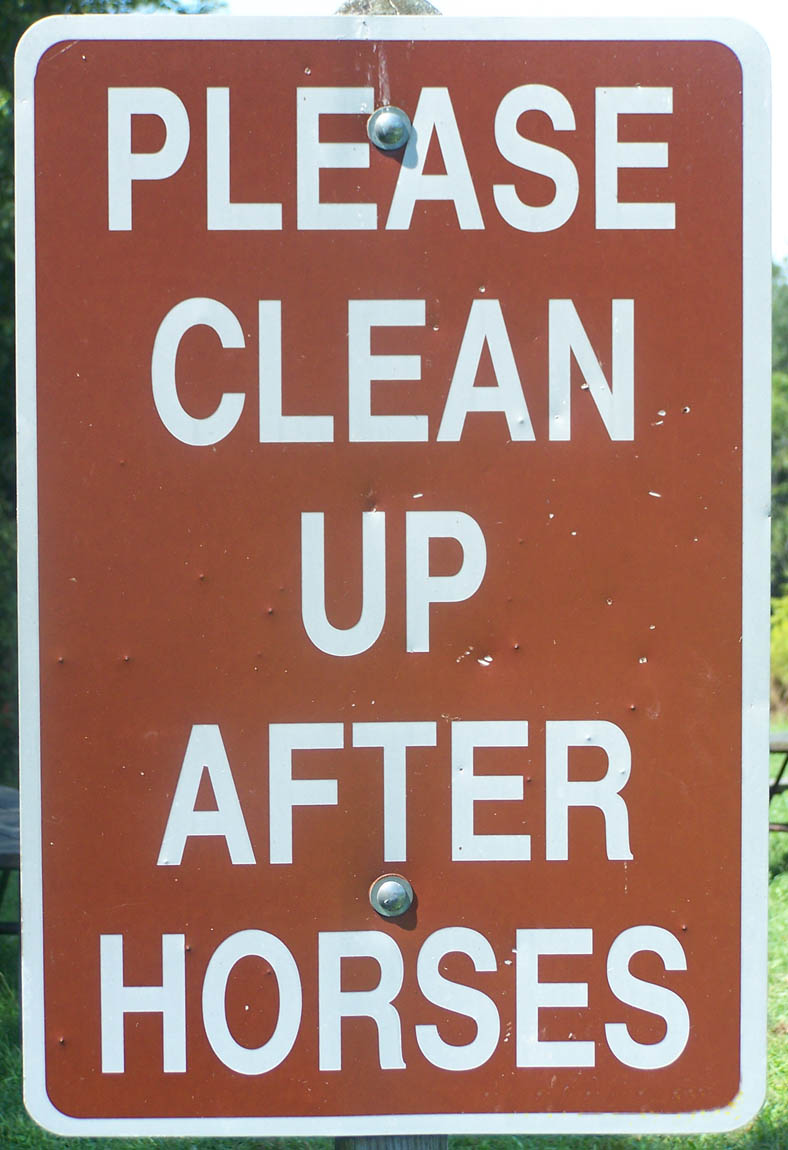

The truth is that unlike many other types of animal manure, dry horse manure has very little odor about it. In the days prior to commercial fertilizers, it was likely that the locals welcomed it as something useful. It is mostly undigested grass fiber and some gut bacteria. We compost the manure that our horses produce and find that when tilled into the garden soil it produces excellent plants of all kinds. The average horse defecates about 10 times daily and produces about 50 pounds of manure a day. I hate to think just how much I have picked up over the years that we have owned horses. However, I have the consolation that I am in good company, even H.R.H. Princess Anne, as a member of the British Equestrian Team, shared in this duty. This is part of caring for the animal and if you confine what is in nature a free roaming animal in an unnatural, human-built enclosure, it is your duty to keep the area clean so as to promote the health of the animal. Also, when visiting public areas were riding is permitted, horse owners should not leave their horse’s droppings in the parking areas. If we want the public to support equine activities, we owe others the courtesy of keeping those areas as clean as possible. However, it is rather difficult to collect all the droppings as you ride along the trails the way dog owners mostly do. I find that nature soon takes care of it. Birds peck the grain contained in the manure breaking it up and insects disburse the rest. After a few days it is mostly gone in warmer weather.
Believe it or not it is possible to house break a horse, but so very few of us feel the need to bring them indoors.
Since I wrote this manure management as become increasingly a matter of governmental regulation. Because of the potential for fecal contamination of ground water and streams many jurisdictions require fencing animals off from flowing streams and written manure management plans, particularly in the case of larger operations.
The Accidental Horseman